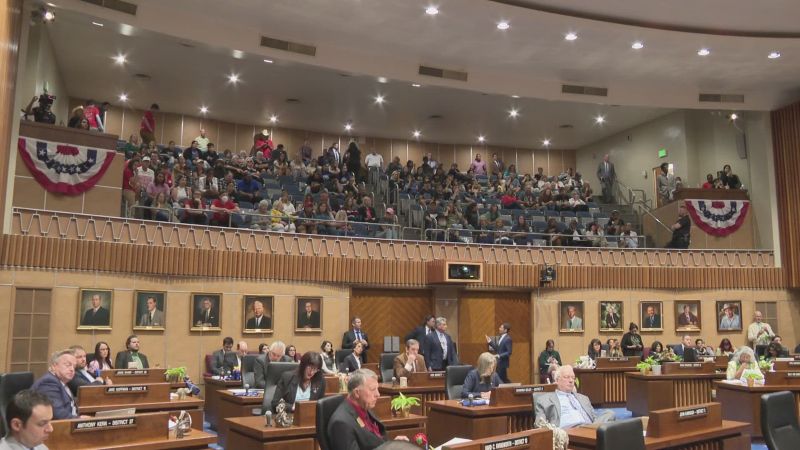Arizona House Pushes Through Emergency Budget to Avert Shutdown as Political Standoff Deepens
Tensions Rise at State Capitol Amid Budget Showdown
In a high-stakes move to avoid a government shutdown, the Arizona House of Representatives passed a temporary budget package, commonly referred to as a "skeleton budget", after failing to reach agreement with the Senate on a previously negotiated bipartisan plan. Despite the urgent measure, Governor Katie Hobbs made it clear she will not sign the legislation, intensifying political tensions in the state government.
The budget now moves to the Senate, setting the stage for further negotiations—but also uncertainty about how Arizona’s government will continue operating in the absence of consensus.
A Stopgap Effort to Keep the Government Running
House Speaker Steve Montenegro defended the House's decision, emphasizing the need to pass a continuation budget to ensure that essential government services remain functional.
"We want to make sure the state is able to function and continue to move forward without a shutdown," said Rep. Montenegro. "The governor certainly has her decision, but the House also has a voice. We're here to represent the people who elected us and address their concerns."
According to Montenegro, the House was left with no choice but to propose a stopgap plan because the executive budget deal—negotiated between the Senate and Governor Hobbs—lacked sufficient support to pass in the House.
Democrats Condemn the Move as Politically Motivated
However, House Democrats criticized the decision, accusing House Republicans of deliberately avoiding bipartisan cooperation. They argued that a compromise budget had already been reached with input from Senate Republicans, Senate Democrats, House Democrats, and the Governor’s Office, but House GOP members chose not to participate in final negotiations.
Democratic Minority Leader Oscar De Los Santos was especially vocal, calling the continuation budget “a disaster from start to finish.”
“The House Republicans refused to come to the negotiating table. Their lead negotiator was completely absent—vacationing in Michigan,” said Rep. De Los Santos. “They cut themselves out of the process and now want to blame others for not being involved.”
De Los Santos emphasized that a fully bipartisan agreement had been reached with broad support, but internal decisions within the House GOP derailed the progress.
Governor Hobbs Rejects House Budget Plan
Governor Katie Hobbs, using her official platform, expressed clear opposition to the House’s budget version. Though she acknowledged the urgency of preventing a government shutdown, she criticized the plan for lacking collaboration and responsible governance.
Her message made it clear: the continuation budget is not a substitute for real negotiation and long-term financial planning.
What's Next for Arizona’s Budget Crisis?
The skeleton budget now heads back to the Senate, where its fate remains uncertain. While it may buy lawmakers a bit of time to prevent immediate shutdowns, it doesn’t solve the core problem: a deeply divided legislature where key parties are unwilling—or unable—to come together at the negotiation table.
The situation raises significant concerns about how essential services, public sector payrolls, and statewide programs will be managed if no final budget is enacted soon.
A State Held Hostage by Political Gridlock
This budget impasse underscores the deepening partisan divide in Arizona’s state government. While the Governor and legislative leaders from both parties in the Senate have managed to find common ground, House Republicans’ unwillingness to engage in the final stages of the process has created a serious roadblock.
The political maneuvering not only endangers state operations but also sends a troubling message to Arizona residents—that political posturing is taking priority over responsible governance.
As lawmakers prepare for the next round of negotiations, the pressure is mounting. Will compromise prevail before critical functions are halted? Or will Arizona’s leaders remain at odds while the state teeters on the edge of a shutdown?
Only time—and political will—will tell.

COMMENTS (0)
Sign in to join the conversation
LOGIN TO COMMENT